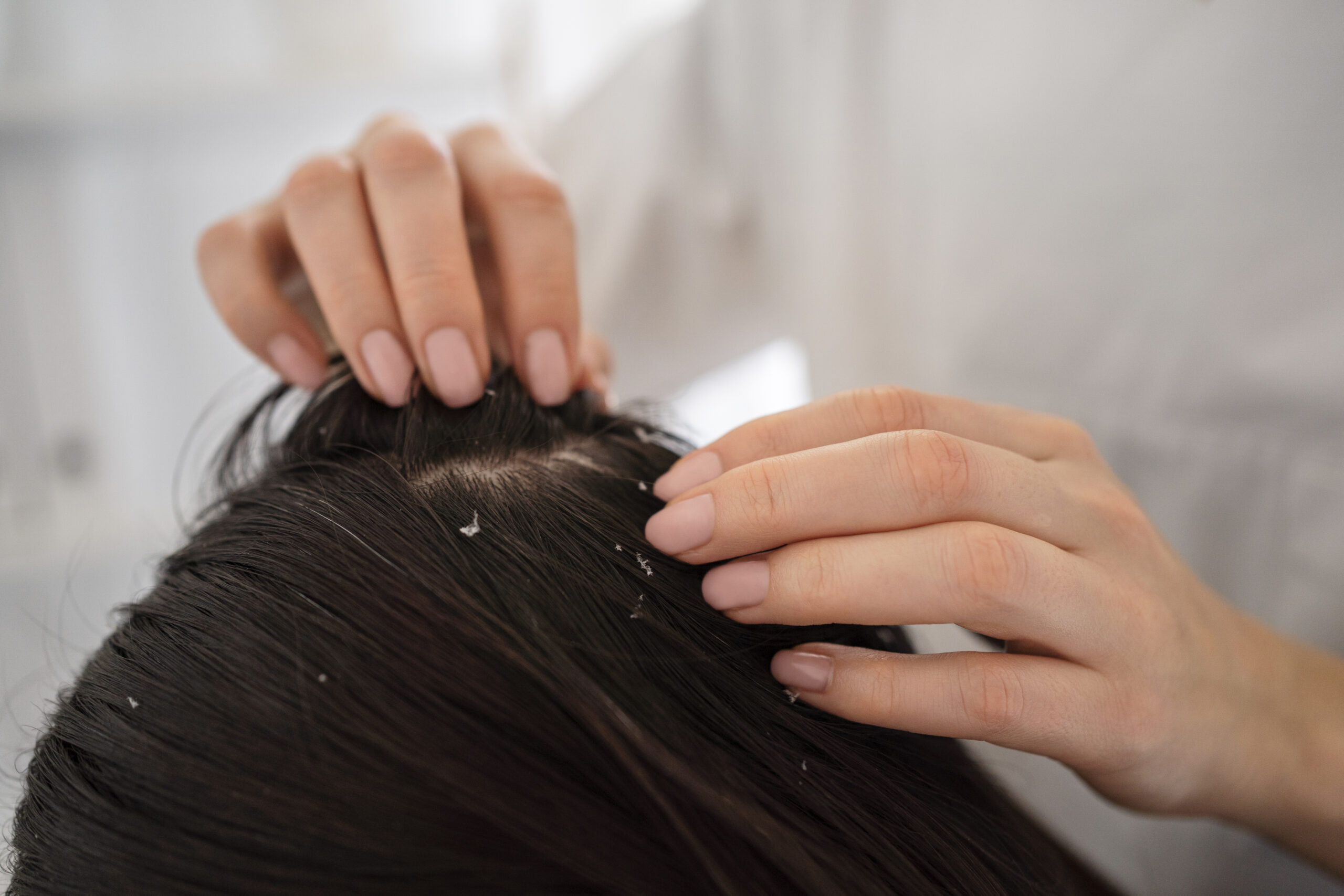Fast Facts
Approximately 50% of adults worldwide experience dandruff
Malassezia yeast, a natural part of the skin’s microbiome, can overgrow and cause dandruff
Dandruff is not caused by poor hygiene but by factors like skin conditions and scalp irritation
Psoriasis and eczema are common skin conditions that contribute to dandruff
Stress, diet, and neurological conditions can increase the risk of dandruff
Dandruff is a prevalent condition characterized by the shedding of small, white, or yellowish skin flakes from the scalp. This often occurs when excessive oil on the scalp accelerates the shedding of dead skin cells, resulting in visible flakes in your hair or on your clothing.
Commonality and Misconceptions
Approximately 50% of adults worldwide will experience dandruff at some point in their lives. Contrary to common belief, poor hygiene does not cause dandruff. Instead, several factors can contribute to its development, including the overgrowth of Malassezia yeast, skin irritants, and various skin conditions like eczema, psoriasis, and ringworm. Additionally, stress, diet, neurological conditions, and environmental factors can also lead to dandruff.
Malassezia Yeast Overgrowth
Malassezia yeast is a natural part of the skin’s microbiome, a community of bacteria, fungi, and viruses that live on your skin and scalp without causing harm. This yeast feeds on sebum (oil) produced by the scalp. When there is an excess of sebum, Malassezia can overgrow.
The overgrowth of Malassezia leads to the breakdown of sebum into oleic acid, an omega-9 fatty acid. In individuals sensitive to oleic acid, this triggers an inflammatory response, causing the rapid shedding of skin cells. This process results in the flakes and itchiness associated with dandruff.
Scalp Irritation
Various factors can irritate the scalp, leading to dandruff. These include:
- Hair dyes
- Unrinsed shampoo
- Hot showers
- Hair care products containing alcohol or allergens
Scalp irritation and damage trigger an inflammatory response, prompting the skin to produce more cells to repair the damage. This results in the rapid shedding of dead skin cells, contributing to dandruff.
Skin Conditions and Dandruff
Certain skin conditions can lead to dandruff, including:
- Psoriasis: A chronic autoimmune condition causing scaly, inflamed patches on the skin. When it affects the scalp, it can accelerate skin cell turnover, leading to dandruff.
- Eczema: Various types of eczema can affect the scalp, causing dry, itchy patches that can flake off. Scratching exacerbates irritation and dandruff.
- Scalp Ringworm: Tinea capitis, a fungal infection, causes dry, itchy, flaking patches on the scalp.
Genetic Factors and Dandruff
If you have a family history of dandruff, you may be more prone to developing it yourself. Researchers have identified 487 genetic markers associated with an increased risk of dandruff. However, more research is needed to fully understand how genetics influence dandruff development. It’s important to note that genetics is just one factor; other influences include hair care products and stress levels.
Demographics of Dandruff
Dandruff can affect anyone, with over half of the global adult population experiencing it at some point. However, certain groups are more susceptible based on age, sex, and ethnicity:
- Age: Dandruff commonly begins during adolescence and peaks in the 20s, then declines with age. Hormonal changes during puberty, which increase sebum production, contribute to its development.
- Sex: Dandruff is more prevalent in individuals assigned male at birth.
- Ethnicity: While dandruff affects all races, some ethnic groups, such as Black people, are more prone to it than others.
Risk Factors for Dandruff
Several factors can increase the risk of developing dandruff, including:
- Stress and fatigue
- Living in extreme climates (cold, dry or hot, humid)
- High sugar diets
- Neurological conditions like Parkinson’s disease, stroke, or traumatic brain injury
- Excessive alcohol consumption
- Immune-compromising conditions such as HIV/AIDS or lupus, or being an organ transplant recipient
Understanding the various causes and factors associated with dandruff can help in managing and preventing this common condition effectively.












